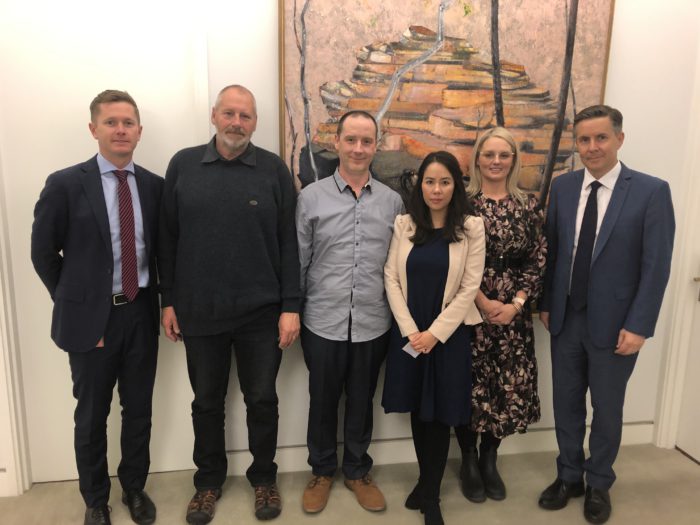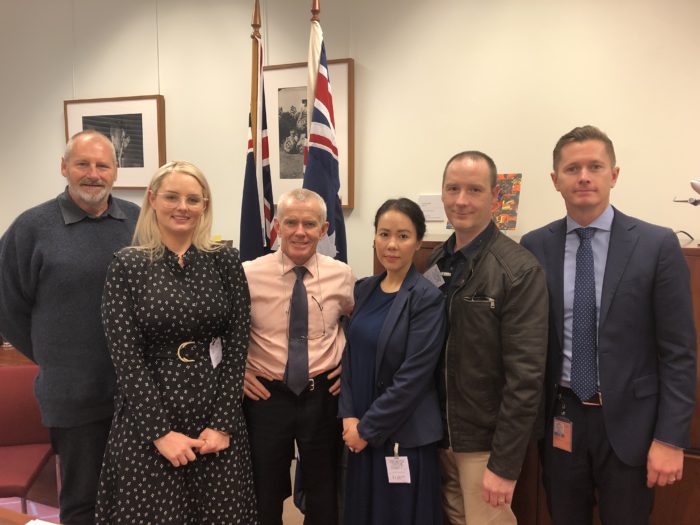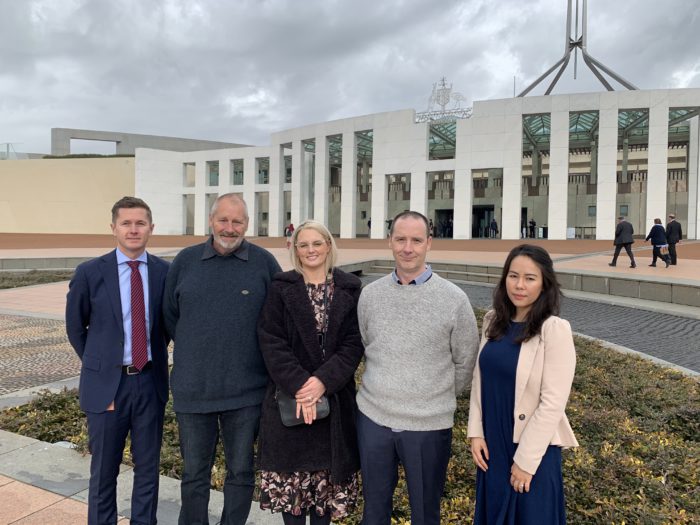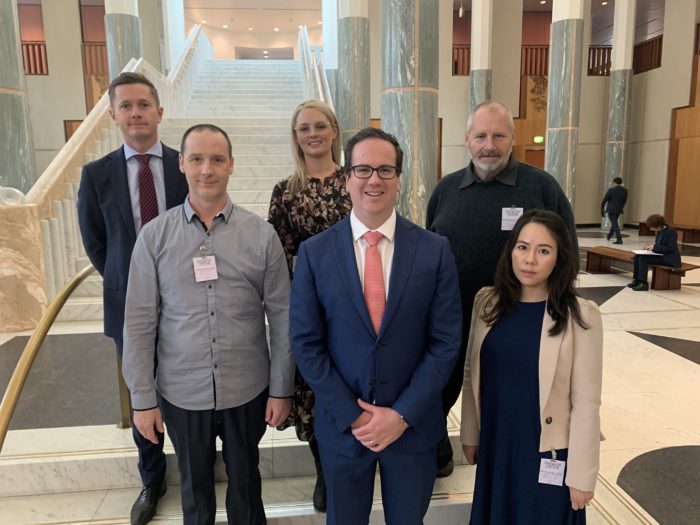The taskforce's brief is to develop a national approach to the prevention, early identification, control and management of occupational dust disease in Australia. It is due to present its final report next week.

When oil, sand, and granite are worked on during blasting, crushing, cutting and drilling, in construction and associated industries, tunnelling, quarrying and mining, silica is released as fine dust.
When breathed in, this dust is small enough to penetrate deep into the lungs, causing irreversible lung damage - silicosis. Dubbed the new asbestosis, it's incurable, progressive and fatal.

About 600,000 workers are exposed to silica dust every year, with about 350 diagnosed with silicosis and 250 with lung cancer.

Joanna, 35, I contracted silicosis after working for Boral Montrose quarry in an admin' role for seven years.
"It's the unknown that is so terrifying," Joanna says. "With silicosis there is that there is no cure, and you just don't know how it will progress.
"At the moment I am feeling healthy, but I don't know if that will be the case in one year, let alone five or 10, and as a mum of two young girls that terrifies me.
"I fear this will affect my life and my family's life, and I am angry. I should never have been exposed to this disease.

Kevin, 53, worked for his company for almost 28 years.
"Every day, walking around the site, we thought we were OK and safe," Kevin says. "But we weren't.
"I wasn't that aware that I could get silicosis from what I was doing. But there was dust in the air, you could see the dust in the air.
"For years we had inappropriate PPE, safety rules and regulations, I was even offered second-hand equipment. This should have never happened."

Craig, 61, worked at a Victorian quarry for 36 years until he was diagnosed with silicosis in 2019.
"My health, family, work, and finances have been devastated," Craig says. "Silicosis has affected my day-to-day life and completely changed my lifestyle.
"Life now revolves around going from one specialist to another and frequently visiting the hospital.
"I feel shattered. I will not be able to see my granddaughter grow into an adult, spend time with my wife and loved ones, and be there for my family."
In an effort to head off further tragedies the AWU wants:
- A nationally consistent regulation outlining minimum safety benchmarks and mandatory health monitoring across all industries where workers are exposed to silica dust, with penalties for non-compliance.
- A national notifiable dust disease system, with a system of mandatory reporting to a centralised occupational lung disease register.
- Financial and psychological support backed by the Federal Government and industry for workers and their families diagnosed with occupational lung disease, who have stopped receiving workers' compensation and are struggling to return to work and adjust to life.
- Broadening of the scope of the taskforce's recommendations for reform so it is not restricted to the stone-benchtop industry, but all workplaces exposed to silica dust.









